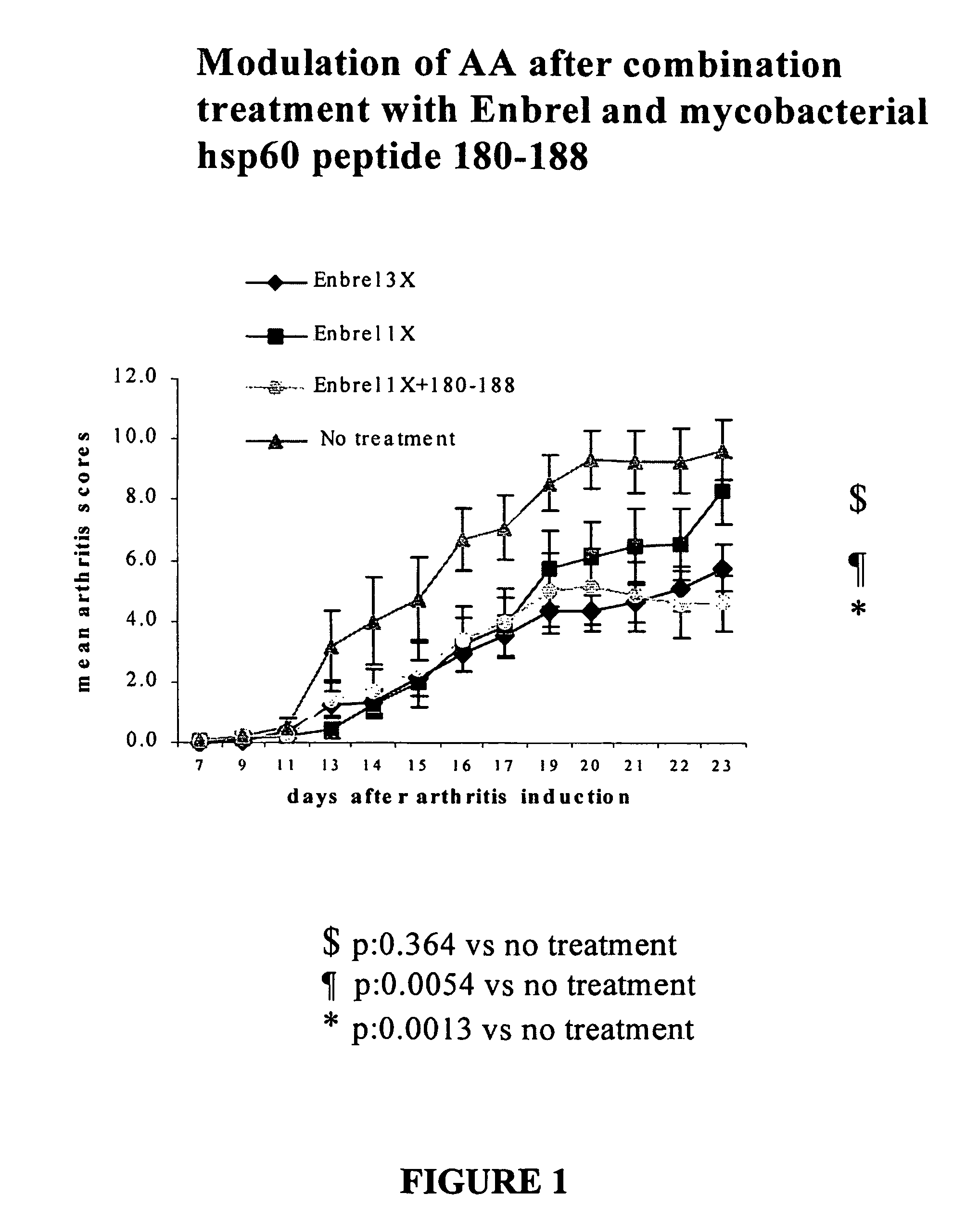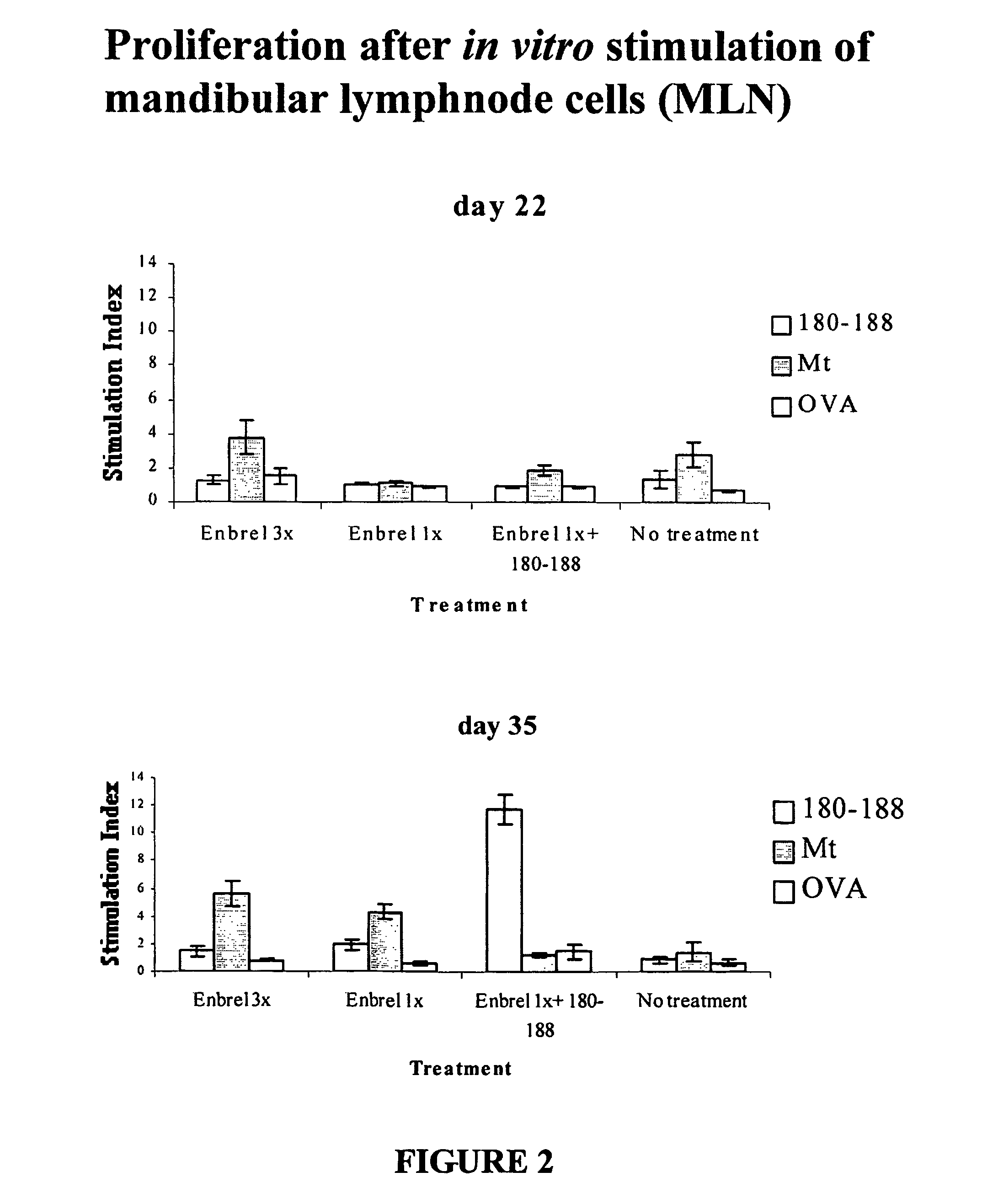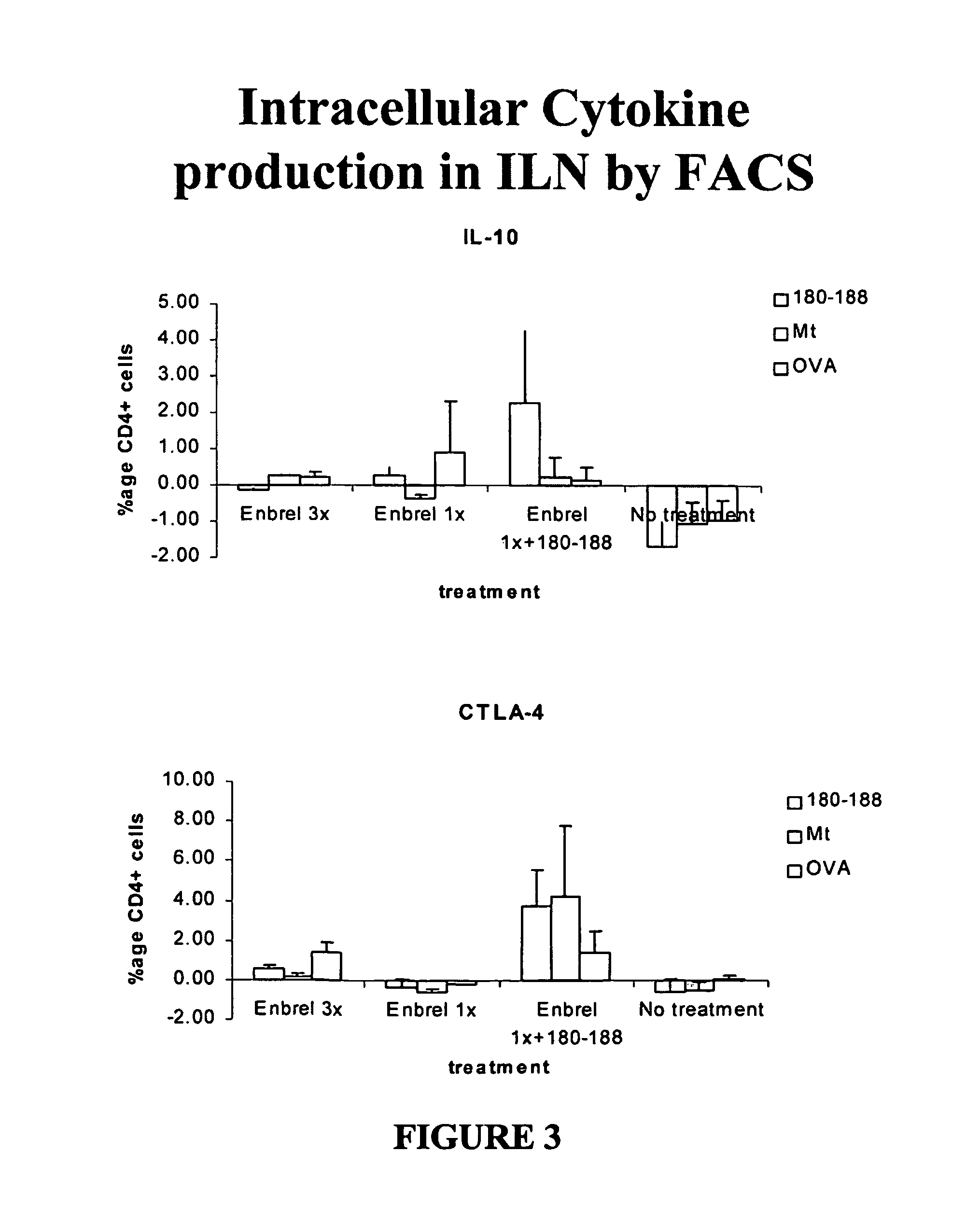Methods for epitope-specific and cytokine/anticytokine combination immunotherapies
a combination immunotherapy and epitope-specific technology, applied in the field of immunotherapy methodologies in immune-mediated disease states, can solve the problems of unknown long-term administration of such biological agents, antigens can also lead directly to interference with downstream events, and so as to reduce the need for ongoing toxic effects
- Summary
- Abstract
- Description
- Claims
- Application Information
AI Technical Summary
Benefits of technology
Problems solved by technology
Method used
Image
Examples
example 1
[0091]In this example, a comparison is made between currently used traditional treatment methods and the invention methods. Performance of traditional methods of treating humans to lower the inflammatory processes arising due to TNFα includes administration of etanercept, (commercially known as Enbrel (Immunex, Seattle, Wash.) a soluble recombinant TNFα receptor / IgG1 molecule that is administered to reduce the presence of TNFα. This example provides data using a rat model (which is recognized as directly correlating with human response) showing that the combination therapy method of the invention provides substantial reduction of side effects with clinically significant benefits and reduction of the need to administer etanercept. (Typically, the use of etanercept in patients is not only very expensive, but also has unforeseen long term side effects, presents an increased risk for opportunistic infection and malignancy, and relapse of disease will occur if administration is stopped.)...
PUM
| Property | Measurement | Unit |
|---|---|---|
| soluble | aaaaa | aaaaa |
| molecular-weight | aaaaa | aaaaa |
| time | aaaaa | aaaaa |
Abstract
Description
Claims
Application Information
 Login to View More
Login to View More - R&D
- Intellectual Property
- Life Sciences
- Materials
- Tech Scout
- Unparalleled Data Quality
- Higher Quality Content
- 60% Fewer Hallucinations
Browse by: Latest US Patents, China's latest patents, Technical Efficacy Thesaurus, Application Domain, Technology Topic, Popular Technical Reports.
© 2025 PatSnap. All rights reserved.Legal|Privacy policy|Modern Slavery Act Transparency Statement|Sitemap|About US| Contact US: help@patsnap.com



